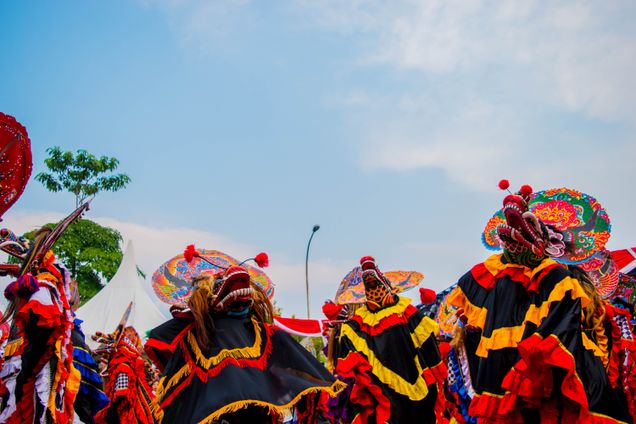Unity in Diversity? How Intergroup Contact Can Foster Nation Building

Uniting people from diverse cultures is a founding principle of many nation states. Throughout history, leaders have introduced policies to foster a national identity in which citizens remain connected by shared history and values, despite never meeting one another. However, rising geographic mobility and increasing diversity within states may complicate the process of creating a cohesive national identity.
In a new journal article published in the American Economic Review, Samuel Bazzi and coauthors use a population resettlement program in Indonesia to identify long-term effects of intergroup contact on national integration. From 1979 to 1988, the Indonesian government relocated 2 million voluntary migrants (transmigrants) from the inner islands of Java and Bali to newly created agricultural villages in the less populated outer islands. Policymakers viewed resettlement as an important part of efforts to unite more than 700 ethnolinguistic groups across the archipelago. One of history’s largest resettlement efforts, the transmigration program provides a unique opportunity to understand how intergroup contact affects nation-building.
Main findings:
- The authors find greater integration in fractionalized communities with many small ethnic groups, as measured by national language use at home, intermarriage and children’s name choices.
- However, in polarized communities with a few large groups, ethnic attachment increases and integration declines.
- Moreover, residential segregation undermines the benefits of fractionalization while mitigating the costs of polarization.
- Language is a key nation-building instrument, with children who grow up speaking Indonesian at home exhibiting weaker attachment to their inherited ethnic identity and greater openness to integrating with those from other ethnic groups.
Overall, the findings support the importance of intergroup contact in nation-building. Diverse societies hoping to create a national identity that transcends ethnic differences can learn from Indonesia’s example, facilitating interaction between groups and recognizing the role of shared language and residential integration in the unification process.
Read the Journal Article